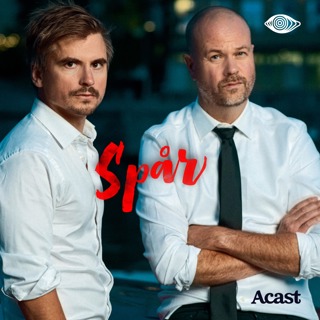
#13 My Child Has a Terrible Teacher: How Do We Fix It?
How often have heard parents complain about their kids' teachers? Everyone, it seems, has opinions about education, test scores and schools. Who is to blame for poor teaching, and how do we fix it? What makes a teacher great? Elizabeth Green, editor-in-chief of Chalkbeat, is the author of "Building a Better Teacher." She studied teaching methods in America and Japan, and has some innovative solutions. Hosted on Acast. See acast.com/privacy for more information.
18 Aug 201534min

#12 The Sour Fight Over Sugary Sodas: How Do We Fix It?
Coca-Cola, the world’s largest maker of sugary sodas, is under fire for giving millions of dollars to a group of scientists who say that lack of exercise is much more important cause of obesity than poor diets. Are they right? Is Coke using scientists to reverse the recent decline in soda sales? And what are the best ways to solve America's obesity crisis? Kelly Brownell, Dean of the Sanford School of Public Health at Duke University, is our guest. Hosted on Acast. See acast.com/privacy for more information.
12 Aug 201528min

#11 Google: Too Powerful For Our Democracy? How Do We Fix It?
How does Google play to our prejudices, and could its mighty search engine be used to change election results? 75% of all internet searches are done through Google. Our guest is well-known psychologist and author Dr. Robert Epstein, Founder of the Cambridge Center for Behavioral Studies and former Editor-in-Chief Of Psychology Today. His recent research suggests search rankings can have a dramatic impact on voting intentions. Hosted on Acast. See acast.com/privacy for more information.
4 Aug 201525min

#10 Washington's Revolving Door Corruption: How Do We Fix It?
The "revolving door" is a corrupting influence on both government and industry. So says University of Tennessee law professor Glenn Reynolds. He's an outspoken critic of Washington insiders and the blogger behind Instapundit.com, one of America's most widely read political weblogs. On our podcast, Reynolds talks about his intriguing solution to slow down the revolving door: a Surtax that would be imposed on the earnings of high-paid former government officials. Hosted on Acast. See acast.com/privacy for more information.
27 Juli 201518min

#9 Our Bad Habits Hold Us Back: How Do We Fix It?
Are you overwhelmed by the flood of information, technology and choices that we all face as consumers? This episode with Jim and Richard features neuroscientist and behavior expert Dr. Peter Whybrow, Director of The Semel Institute at UCLA. His research on the human brain tells us why we make short-term decisions that are often in conflict with our best interests. Dr. Whybrow suggests fixes to help us build better lives and a more caring society. Hosted on Acast. See acast.com/privacy for more information.
21 Juli 201523min

#8 Hacking: The Online Threat To All Of Us. How Do We Fix It?
Data and identity theft are a threat to all of us. The recent breach of government computers at The Office of Personnel Management was only the latest example of a growing crisis. Adam Levin, founder of credit.com and IDT 911 is a leading expert on data crime. He gives common sense tips and advice on how all consumers can cut their risk of being an identity theft victim. Hosted on Acast. See acast.com/privacy for more information.
13 Juli 201527min

#7 Your Personal Finance Is A Disaster: How Do We Fix It?
"Anything is possible in your financial life as long as you work hard at it, and want it bad enough," says personal financial expert Farnoosh Torabi. The host of the daily podcast, "So Money," Farnoosh is an nationally known author and journalist, who has dedicated her career to explaining the mysteries of money in savvy, sensible and clear ways. Her work has been featured in The Wall Street Journal, New York Times, Entrepreneur and many other publications. Learn more about Farnoosh at www.Farnoosh.tv. Hosted on Acast. See acast.com/privacy for more information.
7 Juli 201523min

#6 The Sharing Economy: A Threat To The Middle Class? How Do We Fix It?
The on-demand economy is a hit with consumers. Uber, Lyft, Homejoy, and other companies provide a growing number of convenient services. But there's a heated debate about how they treat their workers. Should they be classified as independent contractors or full-time employees who qualify health care, disability and other benefits? Richard and Jim's guest is Marcela Sapone, CEO of Hello Alfred, a startup company that dispatches workers to co-ordinate laundry, cleaning, grocery shopping and other chores. She has useful tips for freelancers and outspoken views about how employees should be treated by companies, communities and the government. Hosted on Acast. See acast.com/privacy for more information.
29 Juni 201527min





















